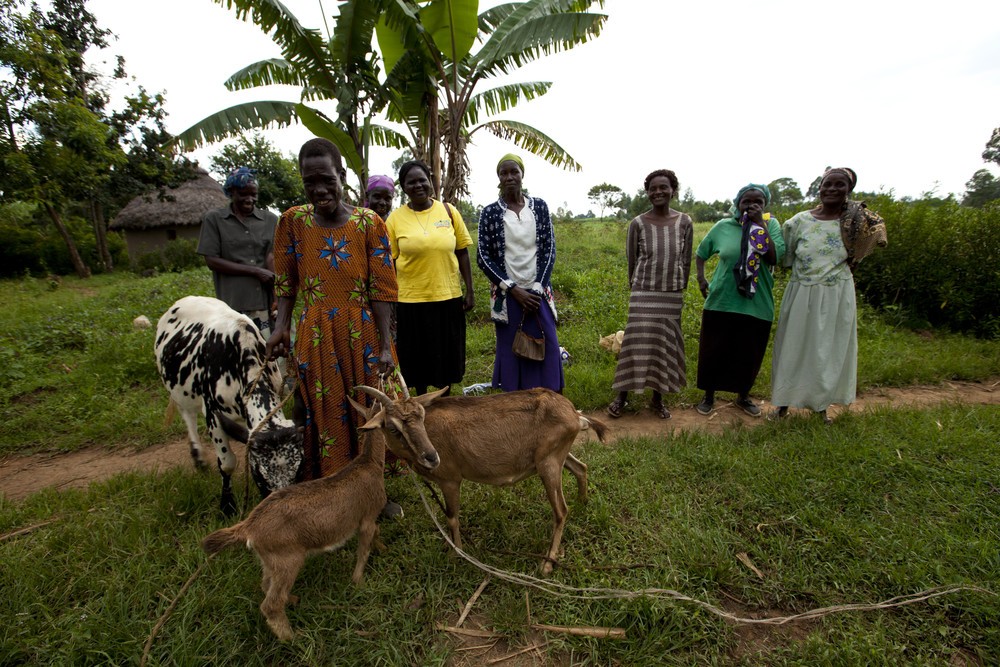IFAD social reporting blog International Women s Day 2015 Empowering rural women to achieve food
Post on: 16 Март, 2015 No Comment

International Women’s Day 2015: Empowering rural women to achieve food and nutrition security
Posted by Beate Stalsett Thursday, March 12, 2015
Written by Anja Lund Lesa and Larissa Setaro
In celebration of International Womens Day IFAD, the Food and Agriculture Organization of the United Nations (FAO) and World Food Programme (WFP) jointly organized an event that focused on empowerment of rural women. The celebration took place on 6 March at IFAD headquarters, and among the attendees were staff from IFAD and its partner agencies, representatives of civil society organizations and around 50 students from universities in Rome.
This year also marks the 20th anniversary of the Fourth World Conference on Women in Beijing. International Women’s Day was therefore a special occasion to celebrate achievements made since Beijing and to discuss remaining challenges. In light of this, the Rome-based agencies dedicated the celebration to empowering rural women to achieve food and nutrition security. The event was followed by a Gender Share Fair where a number of organizations showcased innovative practices designed to empower rural women.
‘If you invest in a rural woman, you invest in a community’
The opening speech by IFAD President Kanayo F. Nwanze emphasized that women are the backbone of rural societies. But unfortunately, many of them are also doing the back-breaking part of the work, and their access to productive assets and services is limited in most rural areas. Many studies have shown that rural women’s economic and social empowerment leads to improvements in agricultural production, food security, nutrition, economic growth and social welfare. Their empowerment has a positive impact on themselves, their families and their communities. As Nwanze said: If you invest in a rural woman, you invest in a community. Gender equality opens doors to entire communities, and the Beijing +20 anniversary is an opportunity to do more to recognize the role of rural women, provide them with more opportunities and better access to assets, and strengthen their voices in decision-making processes.
Significant achievements but more needs to be done
In her statement at the event, Marcela Villarreal, Director of the Office for Partnerships, Advocacy and Capacity Development at FAO, also highlighted Beijing +20 as an occasion to reflect on what has changed in the past 20 years. On the development scene, significant progress has been achieved, she said. Millions of people are out of poverty and hunger, and development processes are now involving multiple actors, including civil society and the private sector. There is more awareness about gender inequality and the costs of not involving women in development. But many challenges remain, and rural women fare worse on all human development indicators compared to men and urban women. Rural women are still burdened with heavy domestic and care-giving workloads in most societies; in sub-Saharan Africa, women spend 40 billion hours every year to fetch water. Hence, more needs to be done to build on existing achievements. Let’s not wait until Beijing +40 to see real advancement in the conditions of rural women, Villarreal said.
Four stories were presented in a panel discussion on nutrition, community mobilization, livestock and land. Those areas are all essential to empowering women to achieve food security and nutrition security.
Britta Schumacher, Programme Policy Officer at WFP, presented the work of REACH, which stands for Renewed Efforts Against Child Hunger and under-nutrition. A very informative video showed experiences from REACH in Bangladesh. reporting on misleading cultural messages about child feeding and diet during pregnancy for instance, that eating less during pregnancy to ease childbirth, or that feeding infants with water and honey so that they ‘talk modestly’ when they grow up. In addition, the video illustrated the weak status of women within households and communities highlighting the issue of teenage and child marriages, and women’s lack of decision-making power. Through participatory approaches, REACH aims to bring women out of the household, interact and share experiences to increase their knowledge on nutritional issues. Women’s knowledge about nutrition is essential for the healthy growth and development of their infants, and for the well-being of women, of the household and, ultimately, of the community as a whole, enabling them to rise out of poverty.














